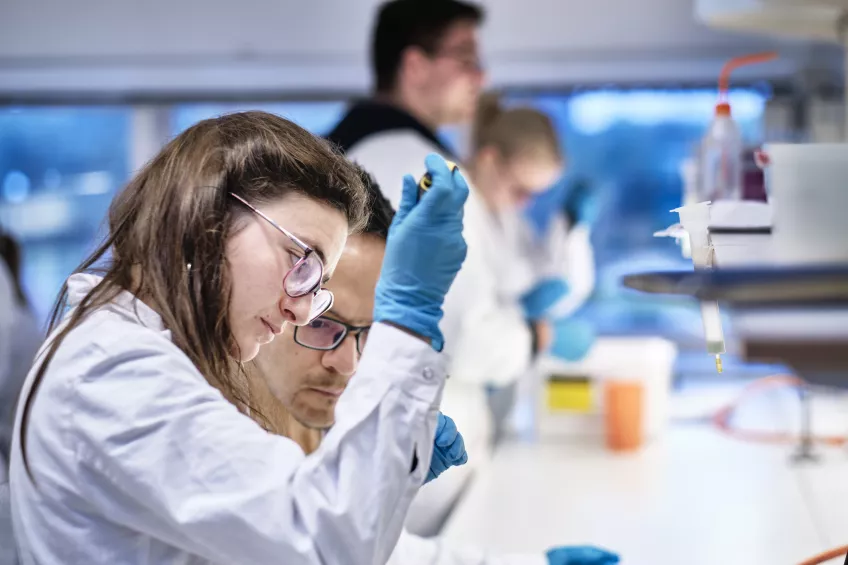Immunology BIOR85
15 credits
Course description
Why study immunology?
Immunology is the study of the different biological structures and processes that together make up the immune system. The immune system plays a crucial role in our life by defending us from microorganisms and other parasites that might cause disease. In addition, the immune system provides protection against tumours. On the other hand, malfunction of the immune system might result in disease, such as allergies and autoimmune disorders.
Immunology is one of the largest and most active areas for basic research in life science. Moreover, knowledge in immunology and immunological laboratory techniques are key for applied research in many disciplines, for example drug development.
Who should take the course?
This course will be valuable for all biology students, but in particular those with an interest in biomedicine. The course is required for the Master programme in Medical Biology, and optional in a Master's degree in Science with a major in Biology or Molecular Biology. It is a valuable foundation for further postgraduate studies or a profession in immunology or biomedicine.
Course content
The course gives a comprehensive overview of the different components and processes of the mammalian immune system. The course covers innate and acquired immunity, infection biology and host-pathogen interactions, mechanisms behind autoimmunity and allergy, vaccination, and evolution of animal immune systems. The theoretical parts are treated during lectures and group seminars. The course also includes several laboratory practicals, where you will train various immunological laboratory techniques, including Western blot, flow cytometry and ELISA. Finally, there is a literature project, where you will write a review about a specific topic in immunology and present it during a seminar.
Examination
A written exam is given at the end of the course. In addition, the requirements include laboratory reports, attendance at seminars and a literature project presented both in written and oral form.
Autumn period 2
Full-time, on campus, in English.
Application
Course literature 2024
Basic Immunology; Abbas A K & Lichtman A H, 7th edition, ISBN-10:0443105197, Saunders/Elsevier, 2023. ISBN-13:9780443105197.
Schedule
The latest schedule for the course Immunology in the schedule software TimeEdit.
Evaluation
You find the latest evaluation on our web page with course evaluations.
Course coordinator
Questions?
Therese Reber, study advisor, molecular biology
Telephone: +46 46 222 73 16
Email: molbiol_master [at] biol [dot] lu [dot] se


